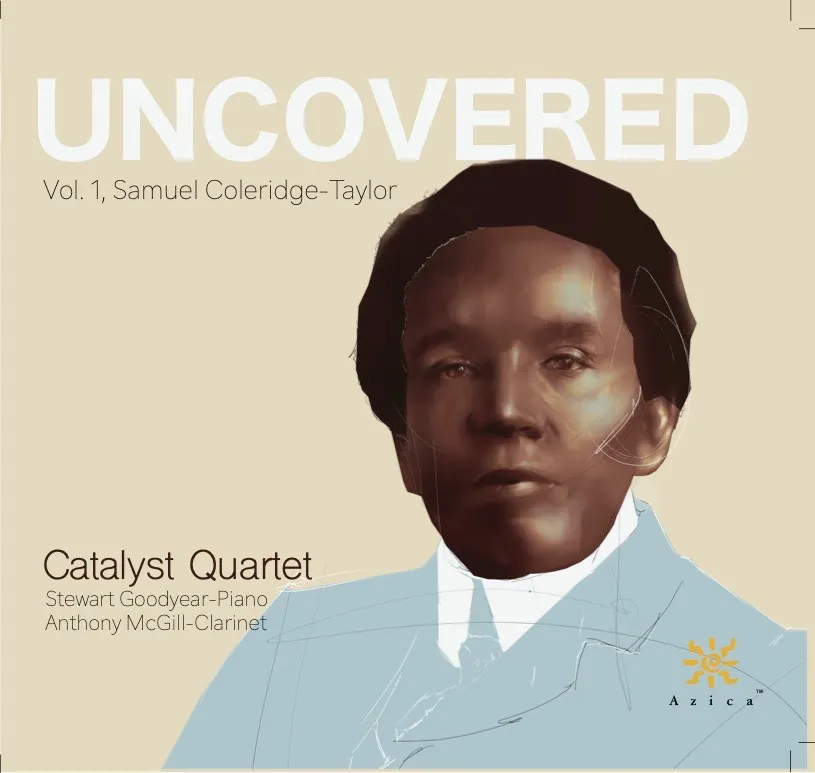
Coleridge-Taylor Uncovered, Vol. 1 – Fantasiestücke; Clarinet Quintet*; Piano Quintet** *Anthony McGill (clarinet); Catalyst Quartet; **Stewart Goodyear (piano) Azica Records ACD-71336 76:11 mins
In his short lifetime, Samuel Coleridge-Taylor achieved fame but not fortune as the so-called ‘African Mahler’ who composed The Song of Hiawatha. He died in poverty in 1912 aged 37, having received no royalties from its many popular performances. The enormity of his loss is brought home by this beautifully performed album of chamber works – astonishingly, composed while still a student.
Earliest is the 1893 Piano Quintet which reveals from the start an exceptional melodic gift. Through four colourful movements, the Catalyst Quartet and pianist Stewart Goodyear capture the combination of freshness and subtle structural command that would become a hallmark of Coleridge-Taylor’s mature work. From the assertive octaves of the opening Allegro to the sudden switches of mood and key of its closing fellow, spaciousness and verve hold sway.
- Find out more about Samuel Coleridge-Taylor and his works
Coleridge-Taylor’s instinct for instrumentation is further developed in the 1895 Fantasiestücke and Clarinet Quintet; the latter marking his arrival as a fully-fledged chamber music adept. It was written following his teacher Stanford’s challenge: that no clarinet quintet following Brahms’s could escape its influence. Coleridge-Taylor reached to his beloved Dvořák to create a deft, complex but easy elasticity between clarinet and strings. And here Anthony McGill proves an ideally sensitive clarinet soloist-cum-partner to the Catalyst: for in none of these works does any single instrument monopolise the texture or thematic interest.
Steph Power